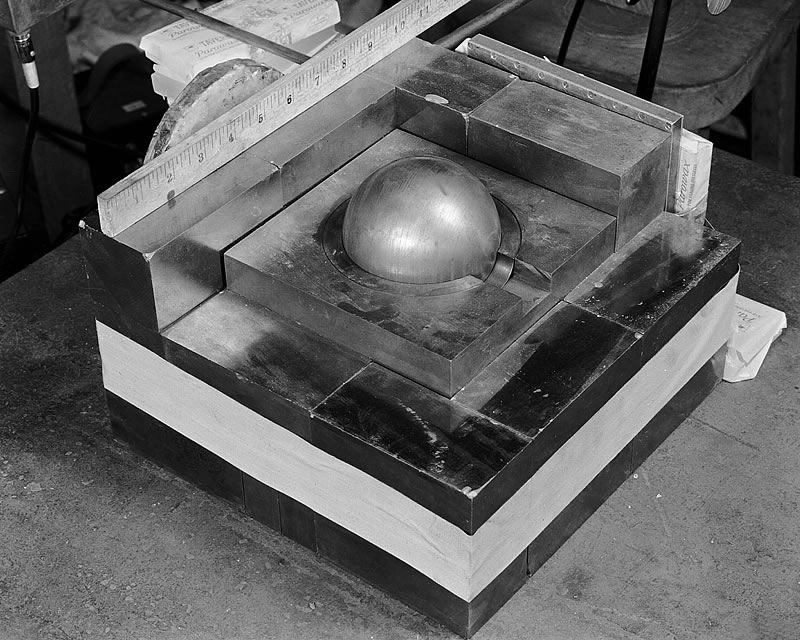
" ... if one must believe Poseidonius, the ancient dogma about atoms originated with Mochus, a Sidonian, born before the Trojan times. However, let us dismiss things ancient." -- Strabo, geographer, 7
New Scientist: Element 114 on the brink of recognition.
The periodic table is set to get bigger, now that three labs have independently made atoms of element 114. There's still one big uncertainty though – should it be classified as a metal or as a noble gas?
In February, an element with 112 protons in its atomic nucleus was recognised and named copernicium by the International Union of Pure and Applied Chemistry (IUPAC). A similar honour should shortly be on the way for element 114.
In 1999, researchers at the Joint Institute for Nuclear Research in Dubna, Russia, claimed to have made atoms of element 114, but no confirmation was available. Now teams at two other laboratories say they have produced it.
One team was led by Heino Nitsche and Ken Gregorich at the Lawrence Berkeley National Laboratory in California. The other was led by Christoph Düllmann at the Centre for Heavy Ion Research (GSI) in Darmstadt, Germany.
Like the Dubna group, both sets of researchers fired calcium atoms containing 20 protons each at a target of plutonium atoms, which contain 94 protons each. A calcium nucleus occasionally fused with a nucleus of plutonium to create an atom with 114 protons, the teams say in papers published in Physical Review Letters in September 2009 and June 2010 respectively.
The US lab detected two atoms of element 114, while the German lab made 13. Most of the atoms decayed into lighter atoms in just a few tenths of a second, though one lasted 3.6 seconds before breaking down. The chain of decay products provides a distinctive signature, confirming that atoms of element 114 really have been produced. "The data as they were published from Dubna have been confirmed," Düllmann says. "There are no questions left [about] whether these decay chains are real or not."
Someone needs to tell the geniuses at IUPAC that "copernicium" is a stupid name. I hope it will be changed to "copernicum" and break the cycle of idiotic names for newest discovered elements...
ReplyDelete